Solo Travel Destination: Lalibela, Ethiopia

Lalibela is a small town in the northern mountains. It is the crown jewel of Ethiopia. It is called the “New Jerusalem,” in the 12th century, beautiful buildings were cut out of volcanic rock. These architectural marvels, classified as UNESCO World Heritage sites, attract pilgrims and tourists worldwide. Adorned with intricate carvings and vibrant frescoes, each church offers a unique spiritual experience.
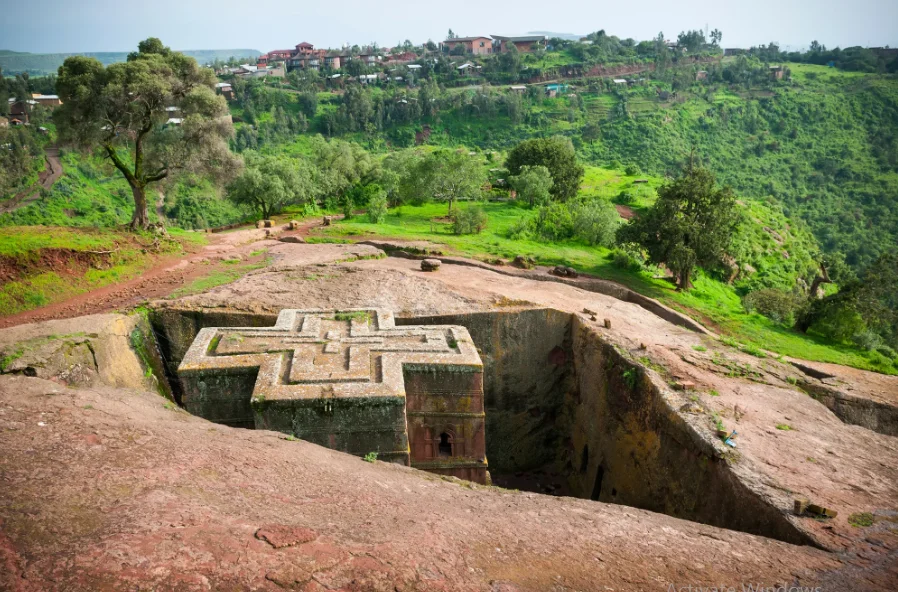
Lalibela’s charm extends beyond its religious significance, with a captivating local culture, warm hospitality, and stunning natural surroundings. Visitors can embark on treks through the rugged mountains and immerse themselves in the lively local markets.
Lalibela’s timeless beauty and spiritual allure make it an unforgettable destination that transports visitors to another era. Prepare to be enchanted by Lalibela’s captivating history and the ethereal ambiance of its rock-hewn churches.
Destinations at Lalibela, Ethiopia
Lalibela, Ethiopia, is home to several fascinating places worth seeing. The rock-hewn chapels, a UNESCO World Heritage site, steal the show, but the local markets are where you’ll find the most bright colors and frantic bustle. Exciting prospects for hiking may be found in the steep mountains that are located all around the town.
1. Rock-Hewn Churches
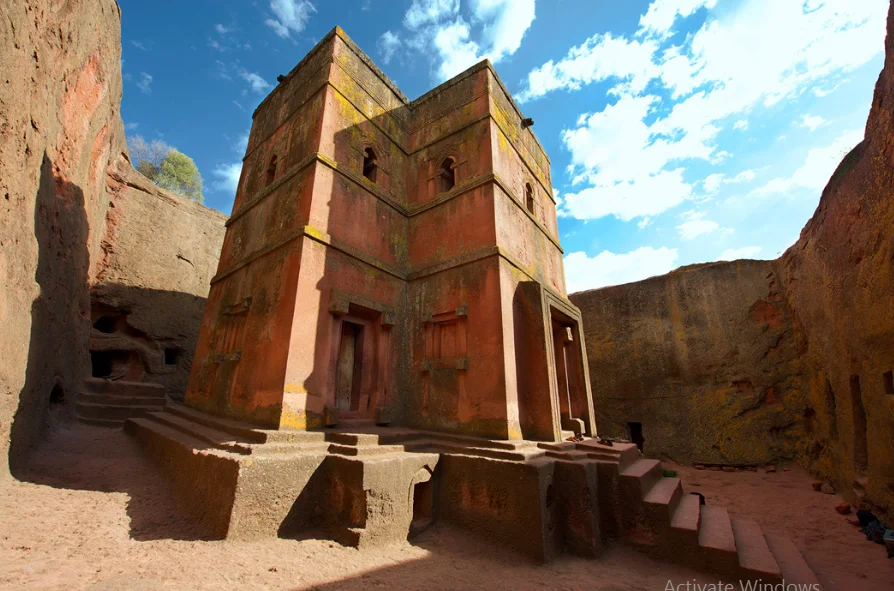
Ethiopia’s rock-hewn churches are an architectural marvel. Carved directly into the solid rock, these ancient churches, particularly those in Lalibela, showcase intricate designs and religious significance. The most famous is the Church of St. George, shaped like a cross and considered a symbol of Ethiopia. These churches transport visitors to a bygone era, allowing them to witness the Ethiopian people’s devotion, craftsmanship, and spiritual heritage.
2. Asheton Maryam Monastery
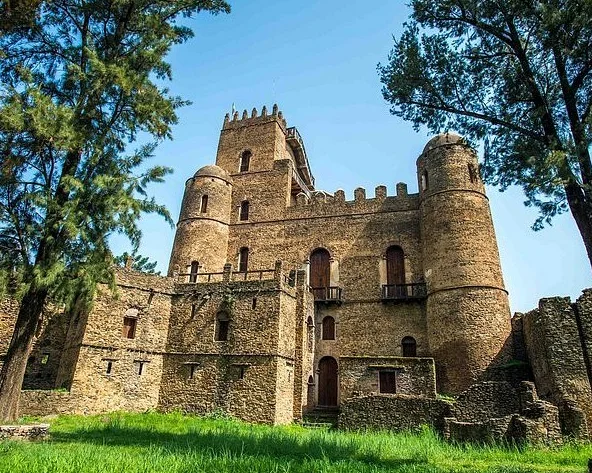
Perched on a hill near Lalibela, the Asheton Maryam Monastery offers a tranquil retreat and breathtaking views. Accessible by a scenic hike, the monastery holds religious importance and is an active place of worship.
Visitors can witness the peaceful monastic life, admire ancient religious artifacts, and immerse themselves in the spiritual ambiance. The journey to Asheton Maryam is a physical and gratifying spiritual experience.
3. Yemrehanna Kristos Church
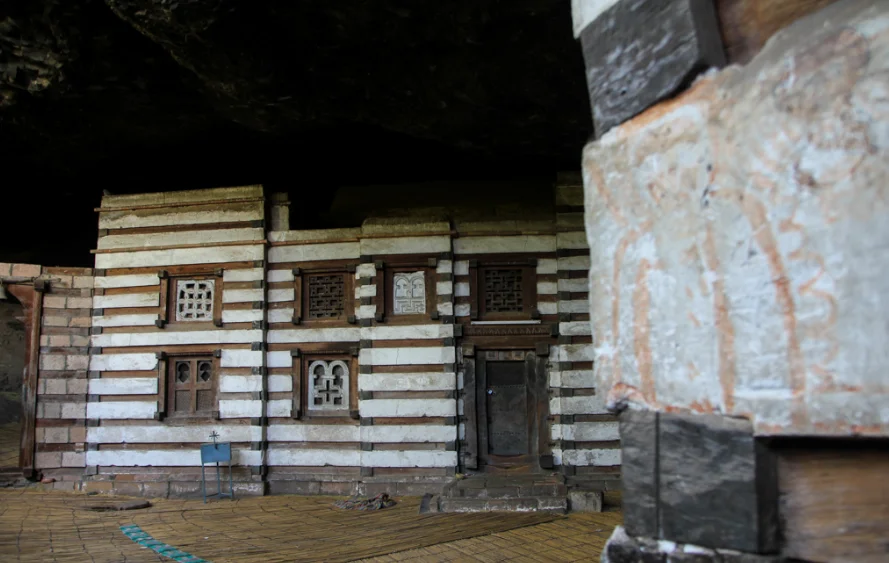
Located in a remote mountainous region near Lalibela, the Yemrehanna Kristos Church is a hidden gem of Ethiopian Christianity. Constructed with precision and skill, this monolithic church dates back over 900 years.
Visitors can admire stunning wall paintings, ancient manuscripts, and unique architectural features. The church’s blend of Aksumite, Zagwe, and Axumite architectural styles showcases Ethiopia’s rich historical and cultural heritage.
4. Genete Maryam Church
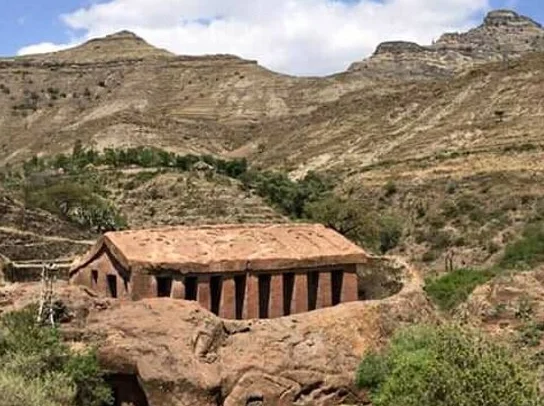
The Genete Maryam Church offers serenity and natural beauty in a picturesque valley near Lalibela. Surrounded by lush greenery and mountains, this rock-hewn church captures the essence of Ethiopian religious devotion.
Visitors can marvel at vibrant frescoes, intricate carvings, and a peaceful atmosphere conducive to prayer and reflection. Genete Maryam Church presents a serene and authentic experience, connecting visitors with Ethiopia’s spiritual traditions.
5. Na’akuto La’ab Monastery
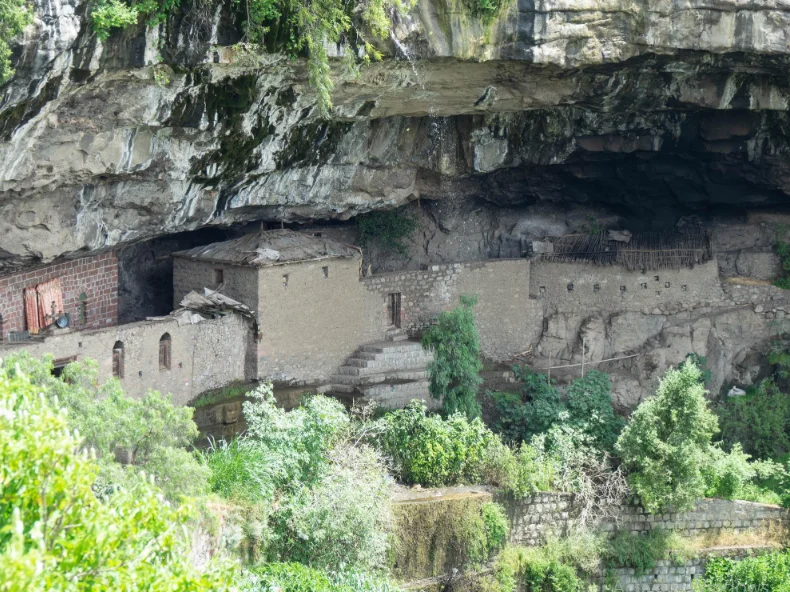
Nestled amidst the Ethiopian highlands, the Na’akuto La’ab Monastery provides a glimpse into the lives of Ethiopian monks and their spiritual practices. Accessible via a rewarding hike, this remote monastery offers breathtaking panoramic views of the surrounding landscape.
Visitors can explore the ancient monastery complex, witness monastic rituals, and soak in the tranquil ambience. The journey to Na’akuto La’ab Monastery promises a rewarding blend of natural beauty, cultural immersion, and spiritual discovery.
6. Bilbala St. Mikael Church
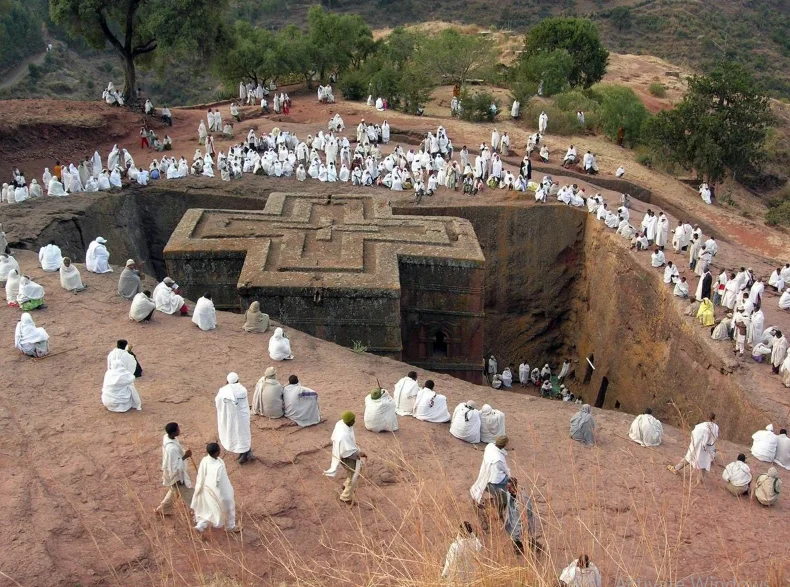
Situated outside Lalibela, the Bilbala St. Mikael Church is an architectural gem surrounded by scenic landscapes. Carved into the rock face, this lesser-known church showcases remarkable craftsmanship and intricate details.
Visitors can marvel at the frescoes depicting religious scenes, study the unique architectural elements, and appreciate the tranquillity of the surroundings. Bilbala St. Mikael Church offers a quieter and more intimate experience, allowing visitors to appreciate the hidden treasures of Ethiopian rock-hewn architecture.
7. Ben Abeba Restaurant

Perched on a hill overlooking Lalibela, Ben Abeba Restaurant offers a delightful culinary experience and breathtaking panoramic views. The unique architecture and design of the restaurant create a memorable ambiance.
Visitors can savor a blend of Ethiopian and international dishes made from fresh local ingredients while enjoying the stunning scenery. Ben Abeba Restaurant is a must-visit for those seeking delectable food, a remarkable setting, and a captivating dining experience in Lalibela.
8. Lalibela Market

Immerse yourself in the vibrant atmosphere of Lalibela Market, where a kaleidoscope of colours, sounds, and aromas awaits. This bustling local market offers a glimpse into the daily lives of the local community.
Explore the stalls filled with handicrafts, traditional textiles, spices, and fresh produce. Engage in friendly bargaining with the local vendors and discover unique souvenirs to take home. Lalibela Market is an authentic cultural experience, allowing visitors to connect with Ethiopia’s rich heritage and vibrant traditions.
9. Lalibela Cultural Center
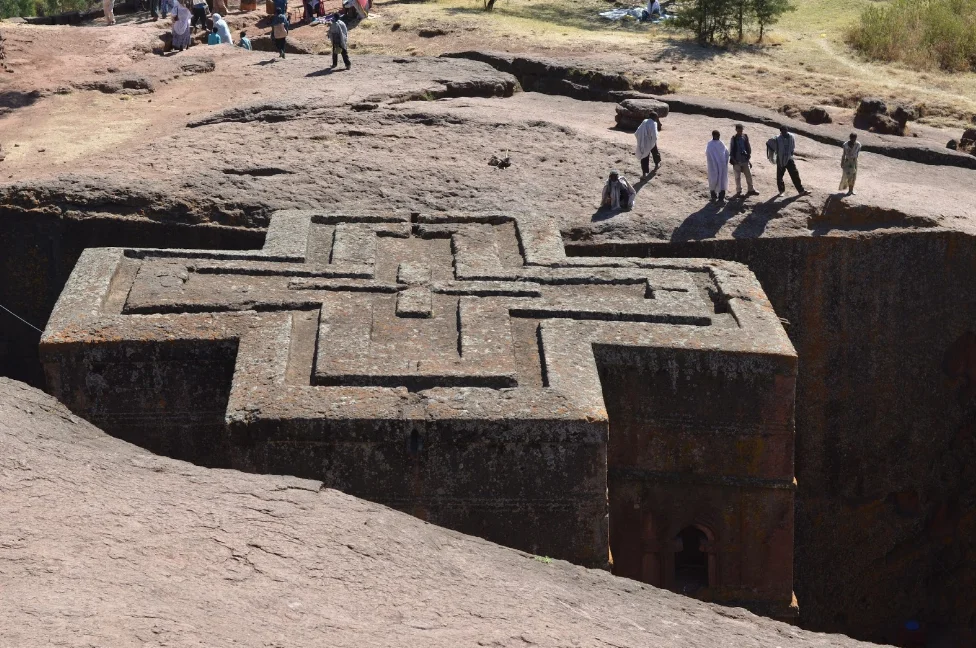
Step into Ethiopian art, history, and culture at the Lalibela Cultural Center. This cultural preservation hub showcases exhibitions highlighting the region’s traditions, customs, and artistic heritage.
Explore the displays of traditional artifacts, intricate crafts, and historical artifacts. Experience the vibrant music, dance performances, and traditional ceremonies that reflect the spirit of Ethiopia. The Lalibela Cultural Center is a gateway to the local community’s heart and soul, offering visitors an enriching cultural journey.
10. Mount Abuna Yosef
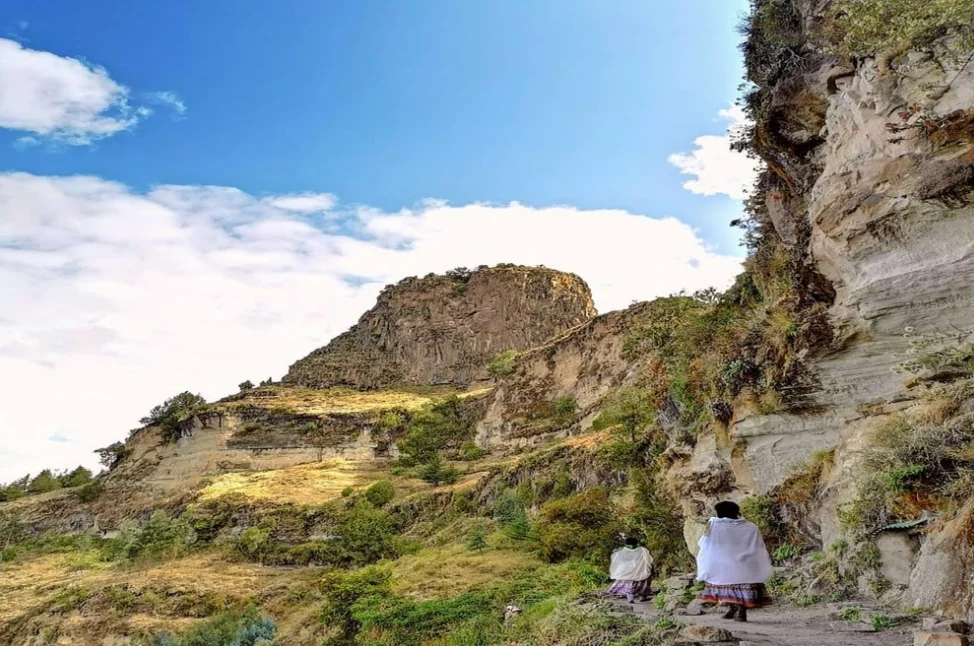
For adventurous travellers, Mount Abuna Yosef presents an exciting trekking opportunity in the Ethiopian highlands. Rising to an elevation of over 4,000 meters, this majestic mountain offers breathtaking views, diverse flora and fauna, and a challenging yet rewarding hiking experience.
Explore the rugged landscapes, encounter unique wildlife, and witness the natural beauty of the Ethiopian wilderness. Mount Abuna Yosef is a paradise for nature lovers, providing an unforgettable adventure and a chance to connect with Ethiopia’s awe-inspiring natural heritage.
11. Yemrehanna Kristos Cave Church
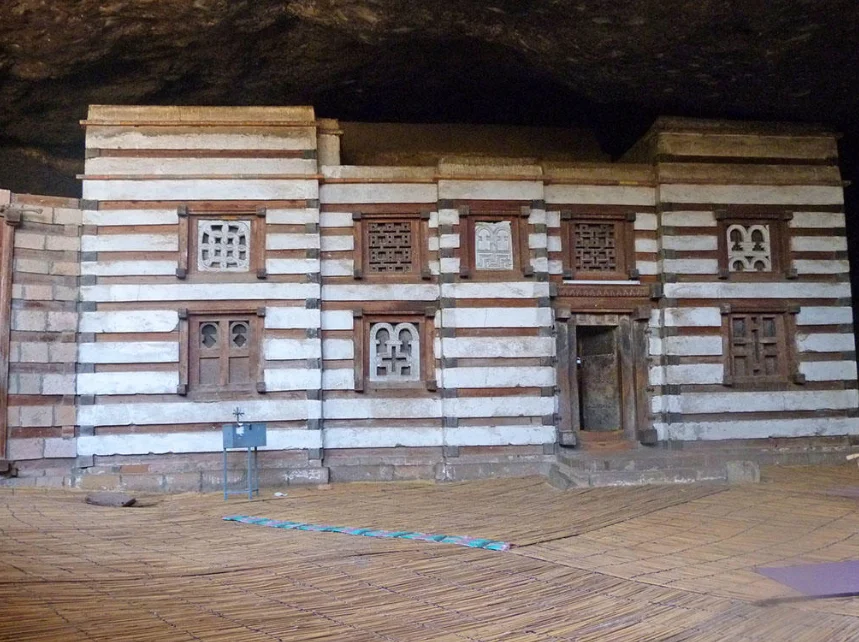
Yemrehanna Kristos Cave Church is a remarkable religious site in Ethiopia. Carved into a cave, this ancient church features intricate stone carvings and breathtaking frescoes. It is believed to date back to the 11th century and attracts both pilgrims and tourists alike. The church’s unique architecture and religious significance make it a must-visit destination for history enthusiasts and spiritual seekers in Ethiopia.
12. Lalibela Honey Bee Centre
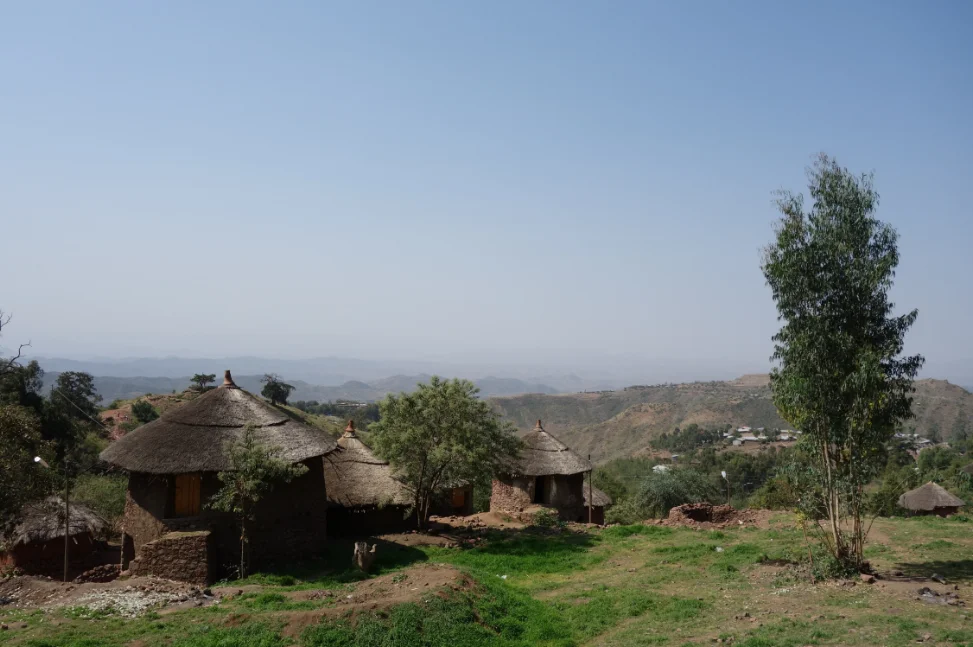
Discover the fascinating world of bees and honey production at the Lalibela Honey Bee Centre. This unique centre provides insights into the traditional beekeeping practices of Ethiopia. Learn about the importance of bees for the ecosystem and the local community while experiencing the honey-making process.
Sample different varieties of pure, locally produced honey and support sustainable beekeeping initiatives. The Lalibela Honey Bee Centre offers an educational and delicious experience for visitors interested in nature, conservation, and traditional livelihoods.
13. Nakuto Le’Abe Monastery

Naruto Le’Abe Monastery, located in Ethiopia, is a serene and secluded place of worship. Situated in a picturesque valley, this monastery is renowned for its natural beauty and spiritual ambience.
The monastery’s architecture showcases Ethiopian craftsmanship and offers a peaceful retreat for visitors seeking solitude and spiritual reflection. Surrounded by breathtaking landscapes, Nakuto Le’Abe Monastery provides a serene sanctuary for those seeking a deeper connection with nature and themselves.
14. Hudad Eco Lodge
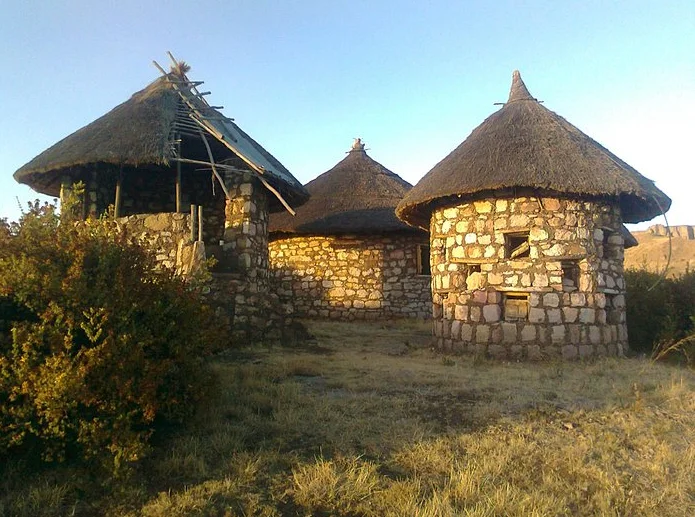
Hudad Eco Lodge, nestled in the Ethiopian highlands, offers an unforgettable escape into nature. Lush mountains and breathtaking views surround this eco-lodge, providing a unique and sustainable accommodation experience.
Guests can enjoy hiking trails, birdwatching, and exploring the local culture. The lodge’s commitment to eco-tourism ensures visitors can immerse themselves in Ethiopia’s natural beauty while minimizing their environmental impact, making it an ideal destination for nature lovers and eco-conscious travellers.
15. Ethiopian Coffee Ceremony
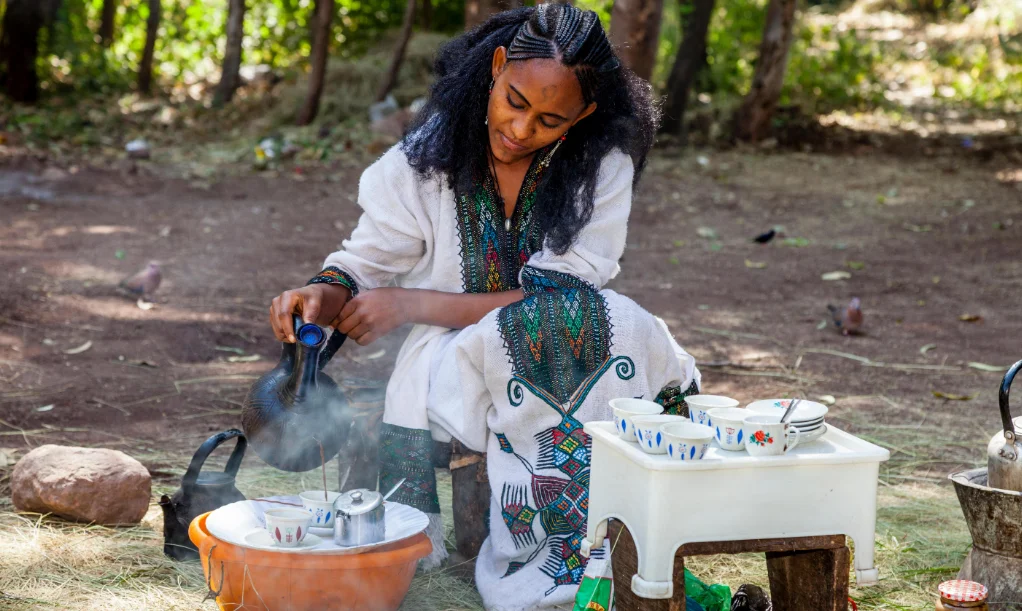
The Ethiopian coffee ceremony is a vibrant and culturally significant tradition that showcases the country’s love for coffee. It is a ritualized process that involves roasting, grinding, and brewing coffee beans, accompanied by traditional music and joyful conversations.
The ceremony represents hospitality and community bonding, offering a warm and inviting atmosphere for locals and visitors. Experiencing an Ethiopian coffee ceremony is a sensory delight and a wonderful way to engage with the country’s rich cultural heritage and deep-rooted coffee culture.
Conclusion
Lalibela, Ethiopia’s gem, offers a mesmerizing journey into ancient history and spirituality. Its rock-hewn churches, carved with remarkable precision, are a testament to human ingenuity and devotion.
Visitors exploring the underground passages and hidden chambers are enveloped in a profound awe and reverence. Lalibela’s allure extends beyond its religious significance, encompassing the vibrant local culture and breathtaking natural landscapes. From trekking the rugged mountains to immersing in the bustling markets, Lalibela captivates the senses and leaves an indelible mark on the soul.
FAQs
How many rock-hewn churches are there in Lalibela, Ethiopia?
Lalibela has 11 rock-hewn churches, each with unique architectural features and religious significance. These ancient churches are a major highlight for visitors to the town.
What is the best time to visit Lalibela?
The best time to visit Lalibela is during the dry season, which typically extends from October to March. This period offers pleasant weather with less rainfall, making it ideal for exploring outdoor attractions and attending religious festivals.
Are there accommodations available in Lalibela?
Yes, Lalibela offers a range of accommodations to suit different budgets and preferences. From luxury hotels to guesthouses and lodges, visitors can find options that provide comfortable stays within proximity to the town’s rock-hewn churches and other attractions.

You must be logged in to post a comment.